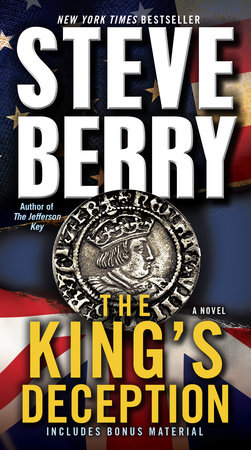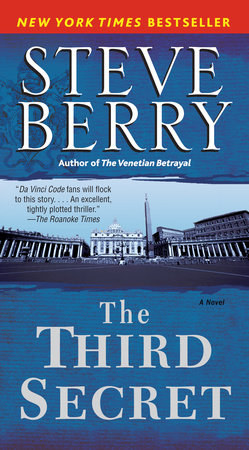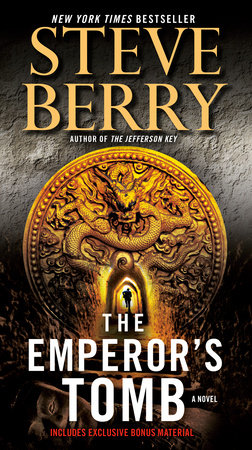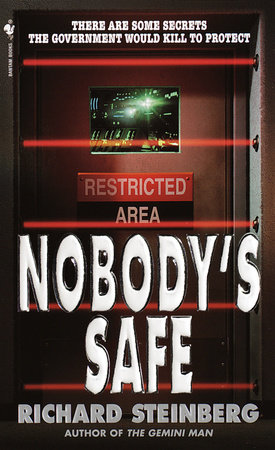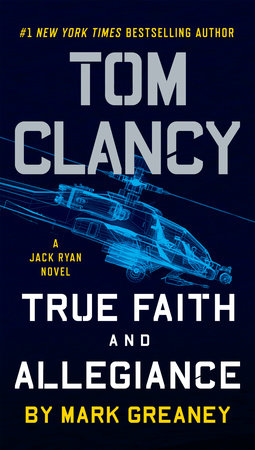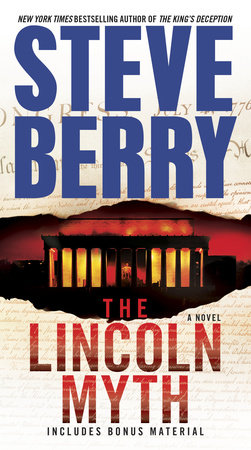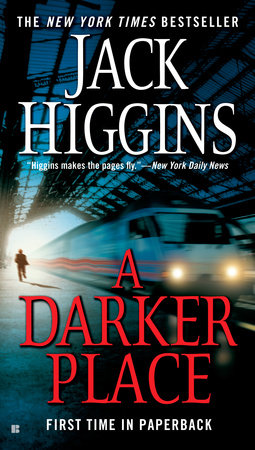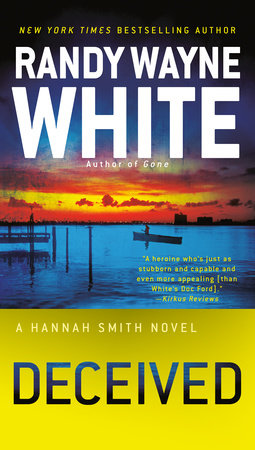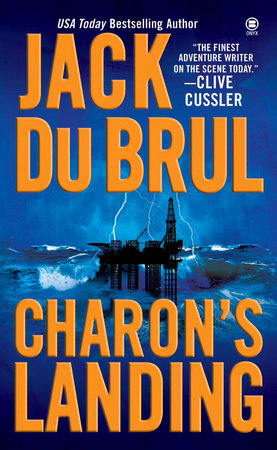A Conversation with William Butterworth III (aka W.E.B. Griffin)
Author of THE HUNTING TRIP
1. The hero of this romantic narrative is a lad named Phil, who skips the remainder of his rather disastrous high school education to join the armed services at the tender age of 17. Does this parallel your own life to a degree?
I turned 17 a month after I joined the Army, which was shortly after I had been (again) expelled from prep school. You had to be 17 and produce a birth certificate that proved it. So I changed the date on mine. My parents’ response was, “He’ll be begging us to get him out in two weeks.”
As for the school—the underlying cause was that I was a bad influence, discipline-wise, on others. I had a perfectly normal childhood, but spent a good deal of it drinking, smoking, and chasing girls.
2. Some of THE HUNTING TRIP’s most enjoyable scenes involve Phil’s uncanny shooting prowess, which bail him out of hot water several times. Were you also a crack shot during your Service years?
I was an average shot… EXPERT, but average. I knew a guy, however, a fellow teenage warrior, who was a phenomenal shot, which blew the minds of the career soldiers and officers. I also knew, later on, a young sergeant, a Signal Corps tech wiz, who took the exam for Warrant Officer, and aced it. Then the Army sent him to Fort Bliss to fix artillery computers, instead of what he wanted to do. So he went out for the pistol team, made his way to the AMU at Benning and stayed there until he retired at age 37. He’s now a Judge in Austin, Texas.
3. THE HUNTING TRIP reveals a lot about the way bureaucracy actually works in the armed services, during the period in which the book is set. How much of that is exaggeration? The way you present the military and its baroque systems seems awfully convincing… and more than a little amusing.
I’m glad you found it amusing, as that’s what I was trying to do, make people smile.
4. Your own military service overlapped with the Korean conflict, but you were hardly a typical G.I. Like Phil in THE HUNTING TRIP, you received counterintelligence training at some point—are you able to share any of those details now?
No.
5. Very well. Can you discuss how your service time in the Army followed an extremely atypical path?
When the Army sent me to Germany, I wound up working as a clerk-typist for Major General I.D. White, then commanding the U.S. Constabulary. This involved writing for his signature unimportant memos (“I don’t want to see anybody spitting on the sidewalks”) and this quickly evolved, when the general saw that what I wrote sounded just like him– which obviously proved how brilliant I was– into writing more and more important papers for his signature. A good deal of this involved the startup of Army Aviation, where I worked with a 25-year old Lieutenant Colonel named Bob Williams, who later became a Lt. General, and is now recognized as the “Father of Army Aviation.”
I also became General White’s “Go-Fer,” which saw me performing all sorts of errands. This resulted in a sleeve full of undeserved chevrons on my teen-aged sleeves. As General White moved upward, he took me with him, first to Fort Knox and ultimately to Korea, to which he had been ordered as a Lt-Gen, to straighten out X Corps (Group) which was really an Army. (We had two Korean Corps under us.)
Among the many errands I ran for him there were support of “Task Force Able” a pre-Green Beret Special Operations outfit then engaged in sneaking into and out of North Korea, blowing up tunnels and taking out senior NK and Chinese officers. It was run by Colonel Arthur B. Simon, and my orders were to get Colonel Simon anything─anything at all─ that he asked for. I did this. After Korea, Colonel Simon went to Fort Bragg, where he started up the Green Berets─Special Forces.
I was surprised when General White told me I was now also the Public Information Sergeant of X Corps Group. He told me he had relieved the full colonel who had been PIO, and replaced him with a Second Lieutenant who knew something about public relations. Understandably, the Second Lieutenant was having difficulty controlling his thirteen combat correspondents. These were well educated young PFCs and Corporals who had been journalists before being drafted. I was to do two things in my new assignment, General White told me, first, control these wild men and second, make sure that none of their dispatches—which were distributed around the world as AP, UP and INS stories—mentioned his name.
I knew this was going to be interesting when I went into the mess tent and saw sitting at a table a tall hawk-featured PFC wearing a Combat Correspondent’s insignia and the Combat Infantry Badge. On his table was a sign reading “4th Grade Thru College”. Across the tent, where the senior sergeants like me dined was a sign reading “First Three Grades Only”.
The PFC was John Sack, fresh from Harvard, where he had not only published the first two of his many books, but also had been the first man to be simultaneously editor of both the “Crimson” and the “Lampoon,” and the first Jewish editor of either.
6. Didn’t you begin your career as a novelist while still in the Army?
One day, some months after we met, while sharing a bottle of Haig & Haig I had purloined from the General’s Mess, I confessed to John Sack that the few stories I had written because none of the combat correspondents were available at the moment, and then seen sent out “on the wire” had made me wonder if I too might hope “one day” be a writer. To which John replied,
“Expletive Deleted. Butterballs, you’re a better Expletive Deleted writer now than anybody here but me. So have at it, you dumb son of a Expletive Deleted. Write an Expletive Deleted novel.”
The first chapters of my first novel, Comfort Me With Love, were written in Kwanda-Ri, North Korea shortly before John and I came home and got out of the Army, and General White left X Corps, to ultimately become the four star Commander-in-Chief, Pacific.
After the most miserable year of my life, selling Karo and Mazola to grocery stores in Philadelphia, Lt. Col Charles A. Merritt, from Task Force Able, looked me up. He said he had decided he had enough of Special Operations and decided to become an Army Aviator. He told me that if I came to work for him at Fort Rucker, I could write papers for him in the morning and work on my novel in the afternoon. I left Philadelphia for Alabama the next day.
When I got to Fort Rucker, I found Bob Williams there. Now a full colonel, he was President of the Army Aviation Board. So for the next four years, I worked morning and afternoon and weekends helping Williams and Merritt get Army Aviation up and running.
These were the happiest years of my life. Somehow, I found time to sire my sons, Bill and John, and to finish Comfort Me With Love on a typewriter I took home at night from my office. And I sold it.
7. Midway through the story, Phil decides to try his hand at writing a pulp novel, which is also called Comfort Me With Love. It’s purchased for a pittance by an old acquaintance who happens to run a paperback book imprint in New York City. What are your feelings about the book industry now, as you approach your 55th anniversary as a published author?
I’ve learned a few things.
Primarily, I think, that being a Best-Selling author is not at all like it’s portrayed. Michael Caine played a best-selling author in a movie. He had a harem of beautiful women lusting after him, and after he made his selection, he would fly them to the Bahamas in his private jet. The reality is I drive my wife to Sam’s Club in our Yukon to see what’s on sale.
Secondly, there is a relationship between an editor’s importance and how much they mess with your typescripts. For thirty-odd years now, I’ve been lucky to have Neil Nyren, arguably the best and most powerful editor in the business. When he tells me to fix something, I know he’s doing it to improve the book, and I fix it.
Pre-Neil I had a plethora of editors who insisted on changes to prove to themselves they were smarter than the author. 99% of them weren’t.
8. It’s interesting how many authors started their careers in the paperback book industry, writing original novels for a couple thousand dollars or less… Major talents like Kurt Vonnegut, John D. MacDonald, Louis L’Amour, Chester Himes and John Jakes all had books published as paperback originals. And you had several novels published that way yourself during the 60s and 70s. Is there anything about the book business as it existed back then that makes you nostalgic?
The checks rarely bounced, and since The New York Times did not review original paperbacks, one was spared snide comments.
9. Readers who associate your with your bestselling historical series about the military, such as The Corps and The Brotherhood of War, may not realize that you wrote books in numerous genres before those series were established.
When the original paperback market collapsed, the checks stopped coming. So in desperation, I accepted a contract from Putnam’s Juvenile Department to write a book on astronomy for twelve-year-olds.
I then went to the library and studied books for twelve-year-olds. And then tried to write a book for twelve-year-olds. I was about to see if I could get my job selling Karo back when the Bob Hope Theater bought one of the original paperbacks for a TV movie. Large check. I was about to return the advance for the juvenile when my practical wife said, “Write something and then make them sue to get their money back.”
I then wrote “The Wonders of Astronomy” for my then twelve-year-old daughter Patricia, ignoring all the rules, and writing it to amuse her. I mailed if off. A week later the phone rang. It was my editor from Putnam’s Juvenile. I was sure he was going to say he wanted the advance back and was going to tell me my career was over.
Wrong! “I loved it,” he said. “How soon can I have three more?” So I became a prolific writer of books for youngsters. There were about forty. Maybe more.
Bill McMorris left Putnam’s to become Managing Editor of Boy’s Life magazine. Some years later he hired my son Bill, who was then on Rung Two of High-Powered Journalism in Washington. When Bill McMorris retired from Boy’s Life, Bill Butterworth IV became Managing Editor, and held that job for sixteen years until he wrote his own first best-seller with me.
10. You were born and raised in South Orange, New Jersey, a town which to this day remains a major commuting point for many who toil in New York’s publishing industry. And yet you ended up settling in Fairhope, Alabama with your wife after your military service was over. Did you experience a major culture clash as you were settling into this community?
I quit government employ after my fifth or sixth book, as by then it was clear I could write full time. I wanted to move from Ozark (outside Fort Rucker), and wanted to go to Sarasota, but I couldn’t afford to do so. A neighbor suggested I look at Fairhope. I did so, and the next day bought the house that’s now my office.
No culture shock. My kids already spoke Rebel.
11. THE HUNTING TRIP is pretty merciless when it comes to dissecting the society types who populate the fictional town of Muddiebay, Mississippi… How did a New Jersey boy like you adapt to life in the Deep South over the years?
I don’t think those society types are only in the South. I was raised in South Orange, you may recall. Only the accents are different.
12. You now spend the bulk of each year at your home outside Buenos Aires, but you do return to Fairhope to visit a couple times a year. What drew you to Argentina in the first place?
I went to Argentina a quarter century ago, to shoot duck and quail. Since my married life was over, I really had no problem with spending what few years─I was then sixty-one─I thought I had left drinking good whiskey and hunting. And then I met Pilar, the young woman who was the tour guide, taking the hunters from the airport to the estancia and so on. I asked her where we going, and she replied “I have no idea”. So I knew she was somebody special.
Pilar is an Argentine Army Brat. Her late father was known as “The Good Colonel Menendez” so as not to confuse him with the bad one. We were married the next year. All of her family wept throughout the ceremony, and no one thought our marriage would last more than three weeks.
When I brought Pilar to the States for the first time, while visiting the BEA show for Putnam, Putnam’s escort and my son Bill met the airplane. They expected a Tootsie with a skirt slit to her waist and 12-inch heels that had suckered in Poor Old Bill in his dotage. Their collected exhale of relief flattened palm trees all over Miami.
Pilar has four children and twelve─ yeah, Twelve─ grandchildren. As a former President of her Rotary Club, she is very active in Rotary Activities all over the Southern Cone. For example, she just got the Rotary in Taipeh to spring for a special hospital operating room in an impoverished city in Argentina.
We try to split our time between here and Argentina, and generally are able to do so. Down there, we have a house in Pilar (no relation) which is 30 miles from Buenos Aires, and is known as the Polo Capitol of the World. The guards in our gated community carry Uzis.
And then we have the house here, in Alabama.
13. What about the hunting trips you have taken yourself over the years? Did any of them yield a particularly memorable trophy?
Memorable Trophy? Pilar. We’ve been married a quarter of a century.






